With the vigorous development of digital media, AIGC (Generative Artificial Intelligence) is undoubtedly one of the hottest topics in journalism today, and its rise has not only profoundly changed the pattern of news communication, but also brought new opportunities and challenges to journalism. But how did AIGC develop and influence journalism, and how should we, as media professionals, view it? On January 5th, Mr. Jiang Menghua, then deputy director of the all-media in-depth reporting department of Zhejiang Daily, was invited to the Digital Media Comprehensive Practice class of the School of Media and International Culture of Zhejiang University to share his unique insights on AIGC with the students.
As a senior media person with 25 years of experience, Mr. Jiang Menghua has won the first prize of the China News Award and the Zhejiang News Award for many times, and has strong influence and appeal in the industry. In the lecture, Mr. Jiang fully expounded the potential application of AIGC technology and its challenges and opportunities for traditional news reporting with witty and vivid expressions, rich and interesting cases and insightful analysis, and unfolded an imaginative and interesting AIGC ecological picture for the students.
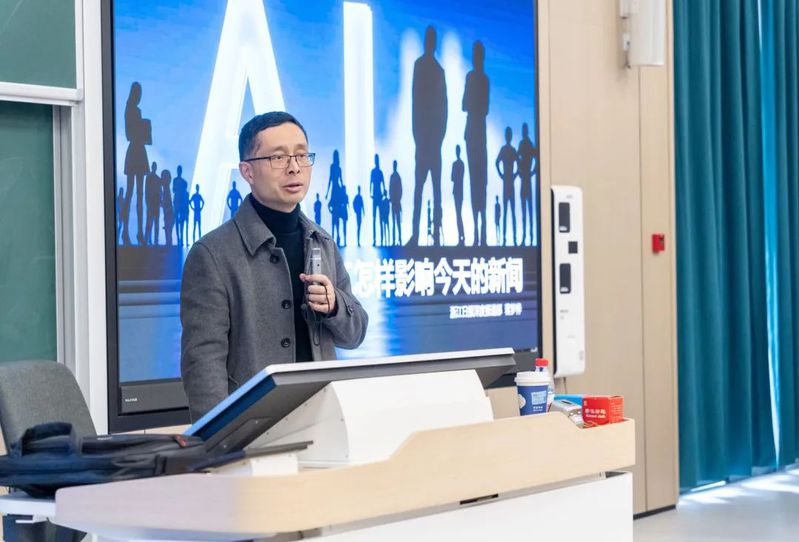
At the beginning of the course, the high-definition blockbuster generated by AI jumped into view, and Mr. Jiang showed the rapid development of AIGC technology in this way, which also quickly caught the attention of the students. Teacher Jiang modestly said, Because of my work and personal interests, I came into contact with the field of AI relatively early, and then shared several interesting videos generated by AI to the students, such as a well-known female singer covering Good Han Song, foreign celebrities speaking Chinese, etc. Mr. Jiang left a suspense here: How are these AI-generated videos made? Wait to reveal. ”
AI for AI – How to make AI speak for itself?
In order to let the students have a clearer understanding of the content of AIGC, Mr. Jiang adopted a novel and interesting way of teaching - let AI talk about AI. At the beginning of the course, he showed the outline of the speech and presentation documents he prepared for this class sharing by using ChatGPT, Wenxin Yiyan, Microsoft New Bing, Tencent Mixed Yuan, iFLYTEK Xinghuo and other large models at home and abroad, so that they could speak for themselves. Based on different underlying logic and training backgrounds, these models have different narrative methods and different interaction paths, and tell their own stories about how AIGC affects today's news.
In this way, Mr. Jiang vividly demonstrated the differences and interaction characteristics of various large models on the market, and also helped students quickly enter the scene of dialogue with AI. At the same time, he proposed that how to ask questions is very important in the process of dialogue with AI, which also paved the way for Mr. Jiang to mention how to achieve human-machine symbiosis. Through observation and comparison, the idea that AIGC technology is developing at an astonishing speed and is having a profound impact on news dissemination is gradually becoming clear in the minds of students.
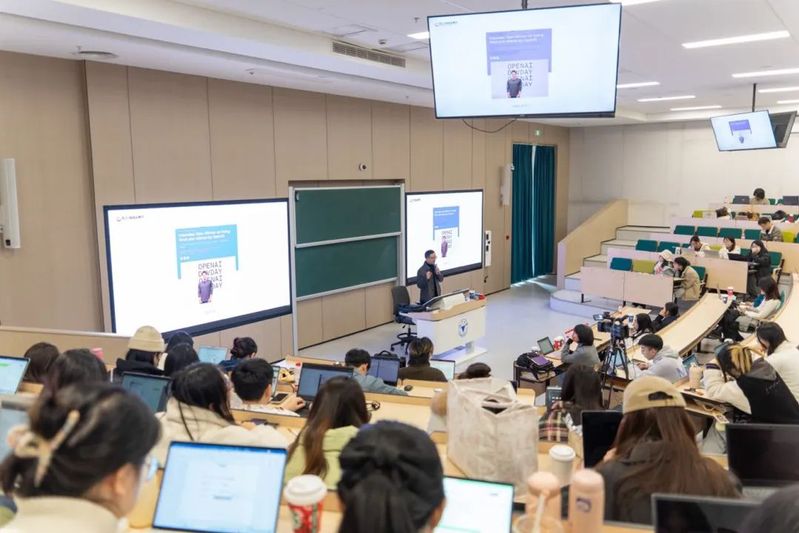
How did AI technology grow?
After AI talks about AI, Mr. Jiang said that he would talk about it. He first sorted out the important nodes of the development of artificial intelligence for the students, from the victory of the chess Deep Blue to the human-machine battle of Go AI AlphaGo, to the rise of virtual idols Hatsune Miku and Luo Tianyi, the birth of China's first robot reporter Xiaoice, and finally to the recent infighting in Open AI...... A clear picture of the evolution of AI technology is slowly outlined. From simple code at the beginning, to a clear image presentation, to today's proficient simulation of human images, the development of AI can be said to be by leaps and bounds.
Looking back on the past, Mr. Jiang mentioned and showed the students the Qianjiang Evening News used AI-generated videos to interact with humans and machines six years ago, pointing out that AI used to be only simple content production and content distribution, but today's AI technology development is no longer the same. AI models have sprung up at home and abroad, and AI technology is developing at an unprecedented speed and breadth, from text to images, voice to video. It is precisely because of these tremendous advances that AI has become a key driver of human development in the future.
In order to let the students have a clearer understanding of the current situation of AI models, Mr. Jiang gave more information on AI research and ethnic groups at home and abroad—there are three major overseas companies, namely ChatGPT and New Bing led by Microsoft, Anthropic jointly led by Amazon and Google, and Google's own Bard and Gemini. In China, 188 domestic large models have emerged in just half a year, showing a trend of hundreds of schools of thought. Mr. Jiang's speech was simple and interesting, which not only showed the unlimited potential of AIGC technology, but also allowed the students to see the broad prospects of the future of the journalism and communication industry.
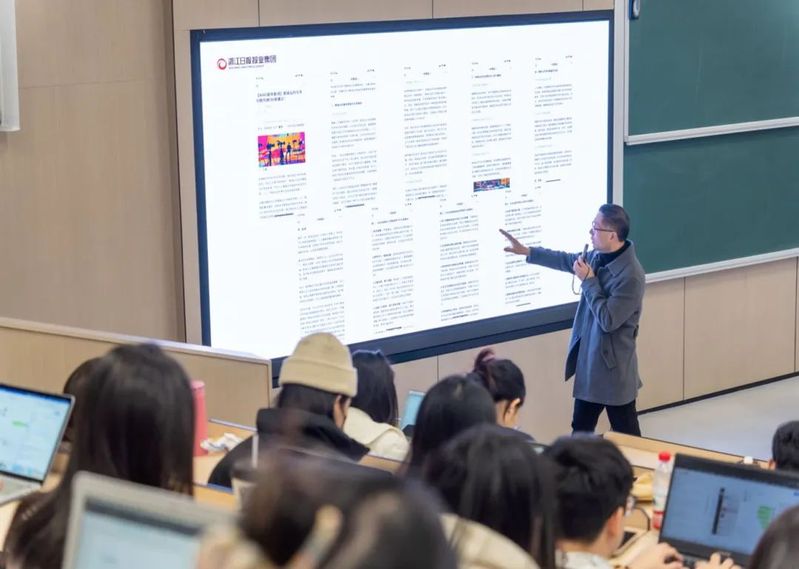
Reinvention and Refactoring: How AIGC Impacts Journalism
Regarding the impact of AIGC on the news and communication industry, Mr. Jiang elaborated on the three aspects of production, form and communication based on specific cases: in terms of production, Mr. Jiang took live streaming as an example to explain that the development of AIGC has brought about the improvement of production efficiency and the reduction of production costs; In terms of morphology, Mr. Jiang talked about conversational interaction and the rise of digital (sapient) human forms, showing the rich and diverse forms of AI through detailed and interesting cases. In terms of communication, Mr. Jiang used the traffic mechanism of Xiaohongshu to explain the popularity of algorithm recommendation and personalized customization brought by AI. At the same time, Mr. Jiang also emphasized that although the application of AI technology in news production can significantly improve efficiency, people's rational thinking and content differentiation and localization are still indispensable.
In addition, Mr. Jiang also introduced the first vertical model focusing on media scenes in China, which Zhejiang Daily Newspaper Group is striving to build, which has won the Wang Xuan News Science and Technology Award. The model has a wide range of application scenarios, including hotspot recommendation customization, private domain media resource integration, real-time information generation, multimodal semantic retrieval, intelligent creation assistant, and media resource library upgrade. This initiative undoubtedly demonstrates the determination and action of traditional media in embracing new technologies.
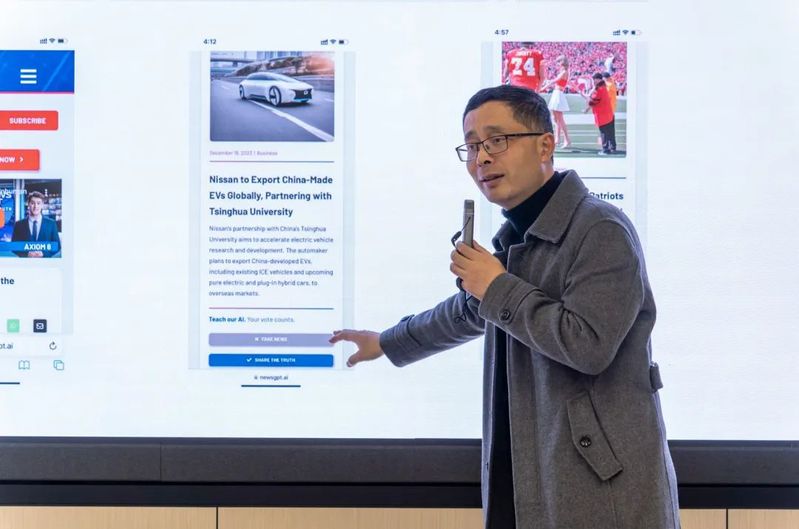
Reflection and Prospect – How should we respond to AIGC
In addition, Mr. Jiang also introduced the first vertical model focusing on media scenes in China, which Zhejiang Daily Newspaper Group is striving to build, which has won the Wang Xuan News Science and Technology Award. The model has a wide range of application scenarios, including hotspot recommendation customization, private domain media resource integration, real-time information generation, multimodal semantic retrieval, intelligent creation assistant, and media resource library upgrade. This initiative undoubtedly demonstrates the determination and action of traditional media in embracing new technologies.
In view of the future prospects of AIGC, Mr. Jiang shared the views and predictions of some industry professionals, such as Bill Gates, Ng Enda and others, on AIGC, and proposed: For everyone who is engaged in the media industry now or in the future, they should consider how to deal with AIGC from the following three aspects: whether they will say it or not, and whether they want to do it - first of all, they should examine themselves, in the era of the rise of AIGC, do media people have mastered the skills of flexible application of AI to assist content production? Second, how to talk to AI to get effective interactive effects? And how to deal with the truthfulness, fairness, ethics and other issues of news involved in the logic of AI algorithms?
In this regard, Jiang Menghua bluntly said that technological disruptive changes will affect many industries, and the development of AI is unstoppable. However, Mr. Jiang also emphasized that in the process of integrating technology, it is necessary to ensure the authenticity of news and the ability to think independently, so as to prevent the emergence of technological ethical dilemmas depicted in the TV series Black Mirror. He pointed out that while promoting the technological progress of AIGC, the problems that need to be solved urgently include core challenges such as disinformation identification, information confidentiality assurance, and logical stability improvement.
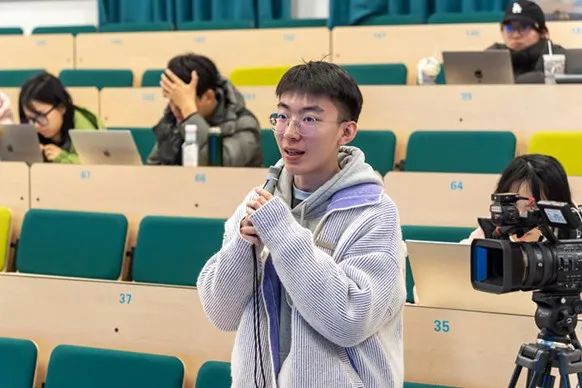
At the end of the lecture, Mr. Jiang earnestly pointed out that the future represented by AIGC has come, and every one of us who will engage in journalism in the future will inevitably need to face its arrival and learn to use and control it better. We should actively learn and apply technology to better grasp its potential and application scenarios, and make it play a positive role as much as possible, and at the same time believe that the relevant departments will also formulate relevant laws and regulations to establish a just social order, which is the realistic way to deal with AIGC.
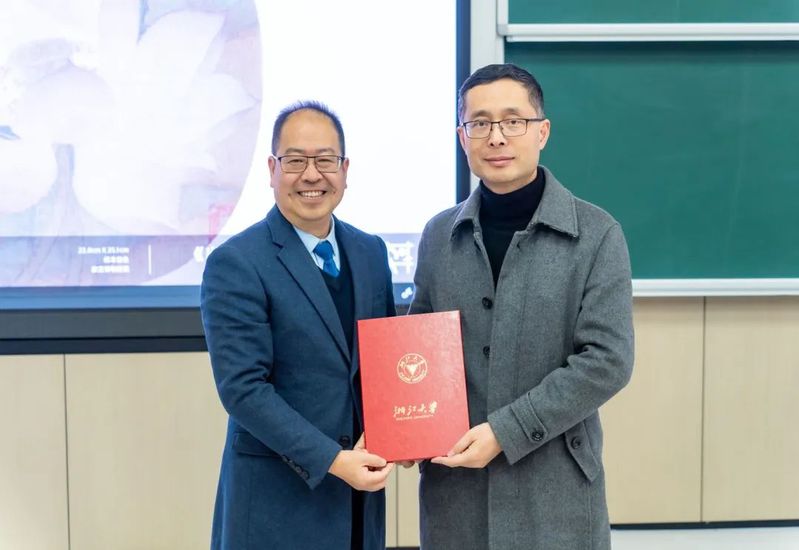
At the end of the lecture, Mr. Wu Hongyu concluded that in today's earth-shaking changes in the media industry, technology affects the whole body, and students need to have a more keen insight and an open mind, take the initiative to actively try, and strive to master new technology, in order to better understand the changes of the times in the media industry and prepare for it.
The three-hour lecture and the huge amount of information gave everyone a glimpse of the far-reaching impact of AIGC on the news and communication industry. More importantly, this change will place higher demands on journalists. We must be soberly aware that with the blessing of technology, the practice of journalism and communication must always adhere to the principles of human rationality and content differentiation and localization, so as to ensure that technology can always serve the society. In this era of accelerating change, only if we have sufficient knowledge and language skills can we find our own position in this revolution and continue to bring valuable content to people.

